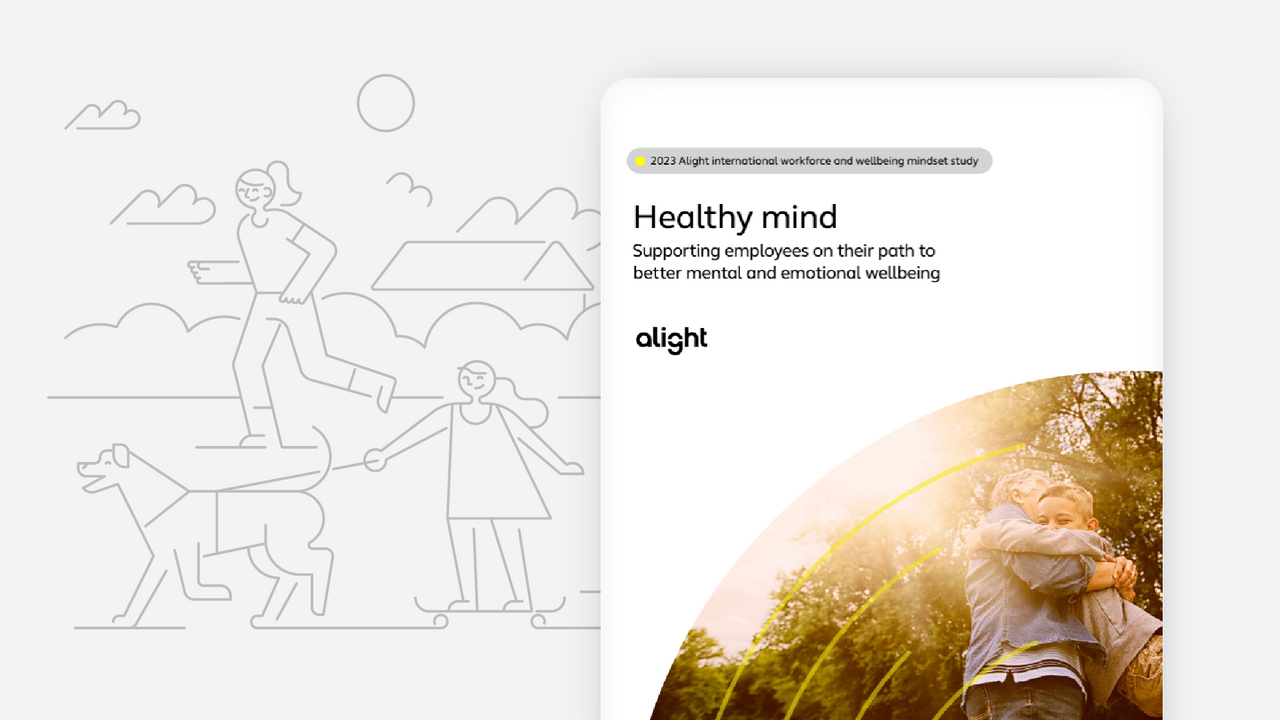
Alight’s 2024 International Workforce and Wellbeing Mindset Study provides some interesting insights on employees’ attitudes regarding this fall's election.
The 2024 U.S. Presidential Election is fast approaching, and there’s little doubt this is one of the most heated battles for the White House in our collective memories. Will voters return former President Donald Trump to the Oval Office or make Vice President Kamala Harris the nation’s first female commander-in-chief? Only the future knows for sure, but in the meantime, people are talking, including employees in the workplace–brick and mortar or virtual.
While the outcome of the contest is yet to be decided, the level of excitement surrounding the election is unmatched. Nearly three-quarters (73%) of people say they intend to cast their vote, according to the Mindset Study. Given the twists and turns that have occurred in the past several weeks, that number may be even higher now than when the Mindset survey was undertaken in Q2. That might also be the case when it comes to younger voters, who told us they are less likely to vote this election cycle. Since President Joe Biden’s exit from the race, however, polls have found younger generations are more enthusiastic about the election.
Yet while many people are energized about their chosen candidate, just under half (48%) say they don’t want to hear political discussions in the workplace, according to the Mindset Study. Across genders and generations, that number is relatively comparable. While just 28% of workers say their employer encourages political debate, 36% say they freely share their political beliefs with co-workers. Men are far more comfortable talking politics at work than women (47% vs. 26%), while women are more likely to say they don’t want to know their co-workers’ political beliefs (52% vs. 30%). Baby Boomers are more likely to remain tight-lipped about their political preferences than younger generations who want to know where their co-workers fall on the political spectrum.
There is virtually no difference in employees’ openly sharing their political beliefs at work when the data is cut by race/ethnicity. However, this is another area where further study may be warranted now that America has its first Black/Asian American female presidential candidate on one of the major party tickets.

MINDSET STUDIES
Take a look at some past Mindset Studies from Alight.
According to Mindset data, concerns abound that sharing political views at work could damage someone’s career growth, with 41% of employees agreeing with that statement. Notably, a greater percentage of men harbor this concern than women (46% to 34%). When it comes to the generations, Millennials are most concerned about the negative impact of workplace political discourse on their careers (44%), while Boomers are the least concerned at 27%.
Across the board, employees view this year’s presidential election as one of the most consequential of their lifetimes—both for the nation and for them personally. More than one-third (38%) of Mindset respondents think the outcome could have a significant impact on their job. Clearly, all eyes will be on the outcome of our nation’s democratic process this fall.


